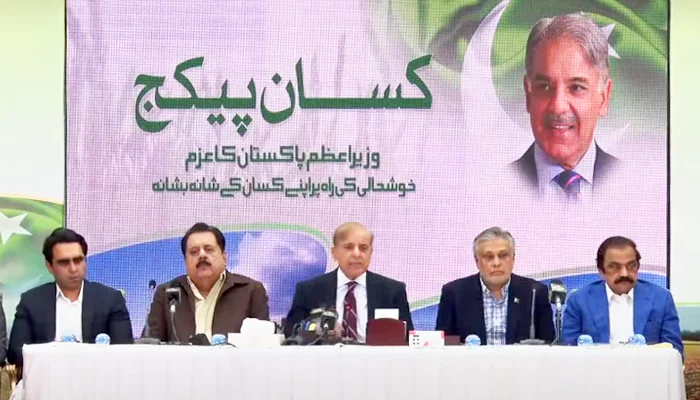ISLAMABAD, Oct 31(ABC):Prime Minister Shehbaz Sharif Monday announced a relief package worth billions of rupees for farmers after cataclysmic floods badly hit the agricultural sector.
“I have come to terms with the fact that the country’s progress is directly proportional to the development of Pakistan’s agricultural sector,” the prime minister said while addressing a press conference alongside federal ministers and members of the government’s economic team.
Unprecedented flash floods caused by historic monsoon rains have washed away roads, crops, infrastructure and bridges, killing over 1,700 people and affecting more than 33 million, over 15% of the country’s 220 million population.
Final estimates put the damage from Pakistan’s recent deadly floods at more than $30 billion, the planning ministry’s Post-Disaster Needs Assessment (PDNA) report stated, adding that the reconstruction needs are over $16 billion.
According to the report, agriculture, food, and livestock suffered losses worth $3.7 billion (Rs800 billion).
Climate-induced flooding across Pakistan has destroyed agriculture resulting in a decrease in the production of major crops. Sugarcane production has been reduced by 8%, rice by 40.6%, and cotton by 24.6%.
The premier said for the ongoing fiscal year, the government will provide loans worth Rs1,800 billion to the farmers — four times more than the preceding year.
“As you all know, the incumbent finance minister [Ishaq Dar] is quite strict […] and he will ensure that all the amount is provided to the farmers,” PM Shehbaz said, highlighting that the commercial banks avoid giving loans to small farmers and entrepreneurs and look for secure investments.
The PM said the markup on the loans taken by farmers belonging to flood-affected areas had been waived off and for this, the government has allocated nearly Rs11 billion.
The Centre and smaller provinces will also provide more than Rs8 billion to small farmers in flood-affected areas, he said, adding that the government would also provide loans worth Rs50 billion to youngsters living in rural areas and are willing to become professional farmers.

